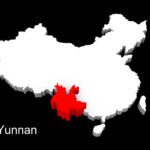Including This Report in the State of Family Project
While this report predates the official launch of the State of Family Project by Marriage and Family Review (MFR), we’re excited to include it on our interactive map. Here’s why:
-
Alignment with Project Goals: This report, published by MFR, delves into a key aspect of family life, echoing the project’s aim to provide comprehensive insights into contemporary families. Its inclusion enriches the project’s scope and historical context.
-
Honoring MFR’s Legacy: MFR has a long and distinguished history of publishing research on families. Including this report pays homage to that legacy and acknowledges the significant contributions MFR has made to the field.
-
Valuable Knowledge: Regardless of publication date, the report offers valuable knowledge and insights that resonate with the project’s goals. Sharing it on the map ensures wider accessibility and fosters meaningful conversations about families.
We encourage you to explore the report’s abstract and full article linked below.
Abstract
This paper reviews Yugoslav studies of marriage and the family with particular focus on the contributions of ethnology/anthropology and sociology.1 Two major historical periods are identified: 1866 to the end of the Second World War, and 1945 to the present. The first of these was characterized by attempts to reconstruct earlier forms of family life and empirical efforts to document and pre- serve disappearing aspects of folk culture among the South Slavs. In contrast, research since that time has focused largely on social change in both rural and urban settings. In postwar Yugoslavia sociology was the only discipline to identify the family as a specific domain of scientific research. During the late 1970s and 1980s new and innovative tendencies can be observed among Yugoslav sociologists. These include the application of an historical approach to family studies as well as the sociological interpretation of history. This period also saw the first appearance of feminist influences. Although there has also been considerable interest in family issues in other disciplines, so far, there has been very little interdisciplinary research on this topic in Yugoslavia.
https://doi.org/10.1300/J002v22n03_04
By incorporating this report, we demonstrate the State of Family Project’s commitment to comprehensiveness, historical awareness, and the pursuit of knowledge that benefits families and communities.
This report is authored by: Edit Petrovic, Ruzica Petrovic,






